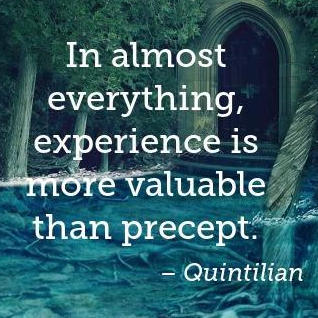As I have suggested previously on this blog, those in the education world who promote the idea of “education for democracy” are usually mainly interested in ensuring that students come to share their own political beliefs.
A close cousin of the “education for democracy” theme is the idea of “preparing students to be citizens”. This is unobjectionable as an ideal, and in its basic form I agree with the sentiment. The problem is that those who tend to make a refrain of it often have a rather narrow conception of what “a(n informed) citizen” means.
Such is the case with the latest in the seemingly endless run of ATAR-bashing pieces on the Conversation website.
It wouldn’t be a facile anti-ATAR diatribe without a false dichotomy to kick things off:
The dominance of ATAR has costs. It can shape senior secondary schooling, transforming it from a broad activity of learning to be an adult and citizen to the quest for a higher score. It can influence students’ and families’ subject choices, and their decisions about things like extracurricular activities.
You will notice that the author implicitly disdains the possibility that it is still possible to receive a broad education in the final years of high school while aiming for a high ATAR. And I am surely not the only one who detects an undertone of humanities snobbery in the laudatory mention of “a broad activity of learning to be…a citizen”. A rigorous education in the hard sciences can play a very healthy role in preparing children for citizenship.
The “learner profile” being touted in the article would include such considerations as:
…extracurricular activities such as sport, part time work, music and theatre, hobbies and the other things they do to broaden their engagement with society and enhance interpersonal skills.
I need hardly point out, surely, that the above shopping list would provide absolute carte blanche for already-privileged adolescents to stuff their pre-tertiary CVs full of the sort of noble-sounding but basically vacuous tick-box activities to which they have easy access. Every exclusive private school in the world offers a dizzying range of extracurricular activities designed to impress prospective employers and the like. Not all government schools do, and not all students in such schools have the chance to take part in such activities, for many reasons.
(It is deeply significant, incidentally, that the author comments favourably on the International Baccalaureate in terms of taking these “personal qualities” into account. Do let me know the next time you hear of a child from Mount Druitt or Taree sitting the IB.)
It is towards the end of the article that the spectre of correct political guidance comes into the picture, as expected:
Similar profiles are used for senior secondary students in Hong Kong, recording three years of academic results and learning experiences, including the attitudes and values students have developed.
But school shouldn’t be just about getting into a university course, or getting the right job. It should also be about preparing students to be citizens actively engaged in society, who participate in the arts and community organizations, who have lives outside of work, who serve others and have a global vision.
The conflation of “being a citizen” with having the right attitudes, or being “actively engaged”, is actually somewhat disturbing, in exactly the same way that the rhetoric surrounding “education for democracy” tends to be. Responsible and informed citizenship does not require one to adopt particular predetermined attitudes (as certain “educators” would hope), or to be “actively engaged” (i.e. an activist), let alone to believe that one can solve all the world’s problems (which tends to be what “having a global vision” means in practice).
There is a growing caricature in education circles of students who keep their heads down and concentrate on accumulating knowledge (rather than “attitudes”) during their secondary years as being somehow easy prey for manipulation, in our “post-truth world”. They, it is imagined, will be the tame, pliable citizens of the future.
I would argue exactly the opposite. Students who have enough knowledge to make informed judgements on the empty rhetoric of those who seek to garner their support are, in my view, infinitely more likely to be able to think for themselves and deal with various issues maturely. Especially if they haven’t been told which “attitudes” to hold just yet.
